
Haeundae: The Jewel of Busan
Haeundae, located in Busan, South Korea, is a vibrant coastal neighborhood renowned for its stunning beaches, bustling nightlife, and cultural attractions. The area is celebrated for Haeundae Beach, one of South Korea's most famous beaches, where golden sands meet the azure waters of the Sea of Japan. Whether you want to soak up the sun, partake in water sports, or simply enjoy a leisurely stroll along the beach, Haeundae offers a perfect seaside retreat. Beyond the beach, Haeundae boasts an array of attractions and activities. The Haeundae Market is a must-visit for food enthusiasts, offering a plethora of local delicacies, fresh seafood, and street food. For a touch of culture, visit the Busan Museum of Art, which showcases contemporary Korean art, or explore the Dongbaekseom Island, a picturesque park connected to the mainland by a scenic walkway. The neighborhood also offers a lively nightlife scene with numerous bars, clubs, and entertainment venues. The Marine City area is particularly popular for its upscale dining and vibrant atmosphere. Haeundae's blend of natural beauty, cultural sites, and modern amenities makes it an ideal destination for tourists seeking both relaxation and excitement.
Local tips in Haeundae
- Visit Haeundae Beach early in the morning to avoid the crowds and enjoy a peaceful walk.
- Check out the local festivals, such as the Haeundae Sand Festival, for unique cultural experiences.
- Use public transportation or walk to explore the neighborhood as parking can be challenging.
- Don't miss the view from the APEC House on Dongbaekseom Island, especially at sunset.
- Try the fresh seafood at Haeundae Market for an authentic taste of Busan's culinary delights.
Haeundae: The Jewel of Busan
Haeundae, located in Busan, South Korea, is a vibrant coastal neighborhood renowned for its stunning beaches, bustling nightlife, and cultural attractions. The area is celebrated for Haeundae Beach, one of South Korea's most famous beaches, where golden sands meet the azure waters of the Sea of Japan. Whether you want to soak up the sun, partake in water sports, or simply enjoy a leisurely stroll along the beach, Haeundae offers a perfect seaside retreat. Beyond the beach, Haeundae boasts an array of attractions and activities. The Haeundae Market is a must-visit for food enthusiasts, offering a plethora of local delicacies, fresh seafood, and street food. For a touch of culture, visit the Busan Museum of Art, which showcases contemporary Korean art, or explore the Dongbaekseom Island, a picturesque park connected to the mainland by a scenic walkway. The neighborhood also offers a lively nightlife scene with numerous bars, clubs, and entertainment venues. The Marine City area is particularly popular for its upscale dining and vibrant atmosphere. Haeundae's blend of natural beauty, cultural sites, and modern amenities makes it an ideal destination for tourists seeking both relaxation and excitement.
Iconic landmarks you can’t miss
Cheongsapo Daritdol Observatory
Experience stunning ocean views and breathtaking landscapes at Cheongsapo Daritdol Observatory in Haeundae-gu, Busan, a perfect getaway for nature lovers.
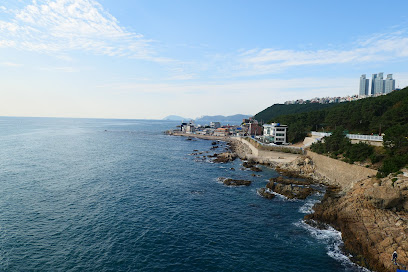
Haeunde Blueline Park Songjeong Station
Experience unparalleled coastal beauty and vibrant landscapes at Haeunde Blueline Park near Songjeong Station, Busan.
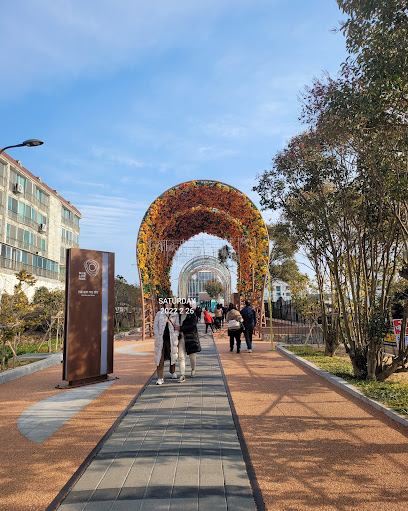
Haeundae Blueline Park - Cheongsapo Station
Discover the natural beauty and exhilarating activities at Haeundae Blueline Park in Busan, a perfect escape for nature lovers and adventure seekers.
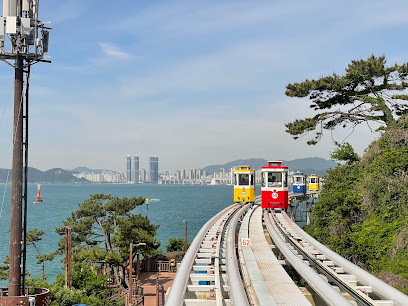
Haeundae Beach
Discover the beauty and vibrancy of Haeundae Beach, a premier destination in Busan for sun, fun, and unforgettable experiences.
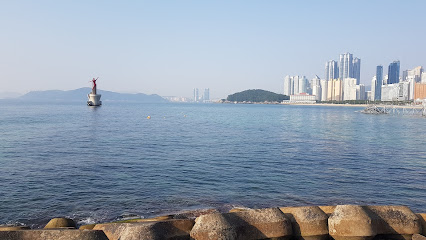
Haeundae Blueline Park
Experience breathtaking views and leisure activities at Haeundae Blueline Park, a stunning coastal attraction in Busan, South Korea.
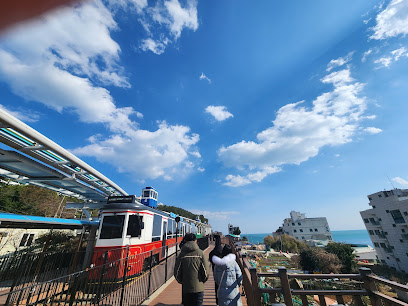
Haeunjeongsa
Discover the serene beauty and spiritual tranquility of Haeunjeongsa, a captivating Buddhist temple located in Busan's scenic Haeundae district.
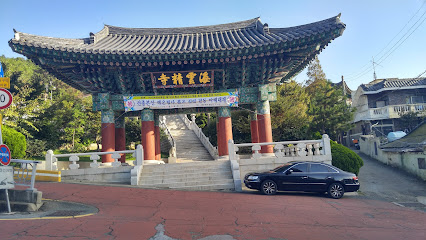
Dongbaekseom Lighthouse
Experience the breathtaking views and rich maritime history at Dongbaekseom Lighthouse in Busan, a must-visit tourist attraction for every traveler.
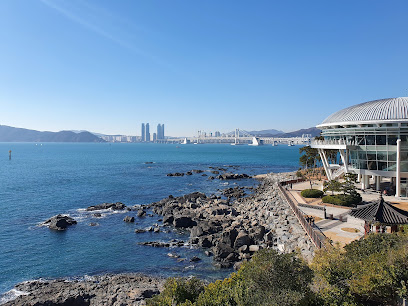
Haewoljeong Pavilion
Explore the tranquil beauty of Haewoljeong Pavilion in Busan, a stunning coastal attraction blending nature and traditional Korean architecture.
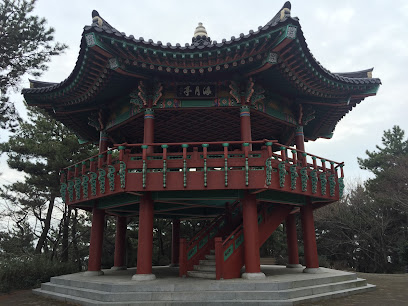
Haemaru
Experience the breathtaking views and vibrant culture at Haemaru, a coastal gem in Busan's Haeundae district, perfect for all travelers.
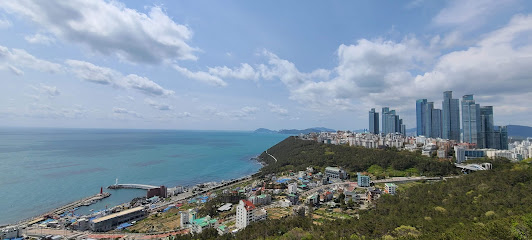
Topaz Princess Mermaid
Discover the Topaz Princess Mermaid Sculpture in Busan, a stunning emblem of maritime mythology set against the breathtaking backdrop of Haeundae's coastline.
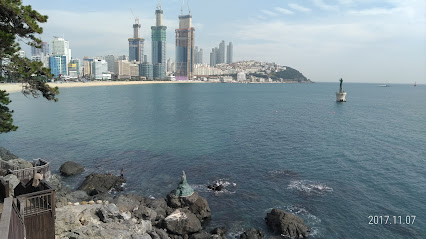
Dalmaji-gil Road
Explore the breathtaking coastal beauty and vibrant culture of Dalmaji-gil Road in Haeundae-gu, Busan, where stunning views and local charm await.
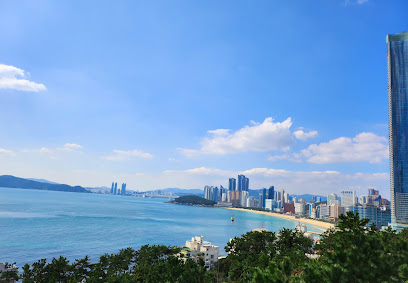
Carved Stone In Haeundae
Explore the Carved Stone in Haeundae, a magnificent heritage site reflecting Busan's rich cultural history and artistry amidst stunning coastal views.
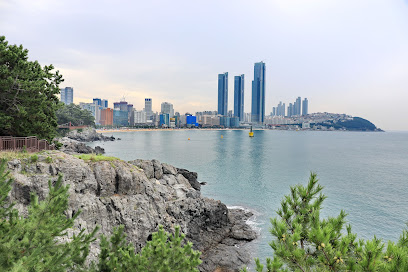
Unmissable attractions to see
Haedong Yonggungsa Temple
Discover the breathtaking Haedong Yonggungsa Temple, a unique coastal Buddhist sanctuary in Busan offering stunning views and serene spirituality.

Haeundae Blueline Park - Cheongsapo Station
Experience breathtaking coastal views and serene walking paths at Haeundae Blueline Park, a top tourist attraction in Busan, South Korea.
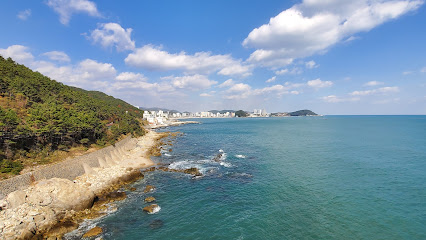
Haeundae Blueline Park
Discover Haeundae Blueline Park, where breathtaking coastal views meet serene pathways, perfect for relaxation and exploration in Busan, South Korea.
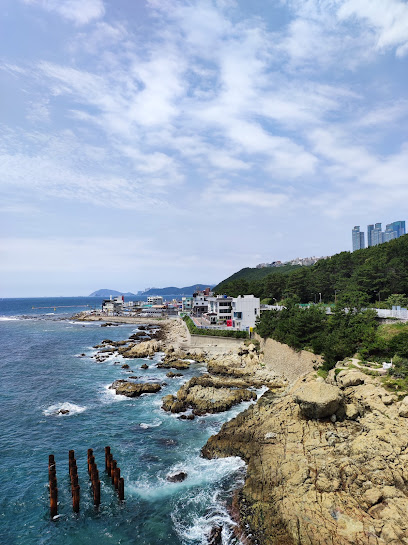
Dongbaek Park
Explore the beauty of Dongbaek Park in Busan, a serene coastal oasis with stunning views and lush landscapes perfect for relaxation and recreation.
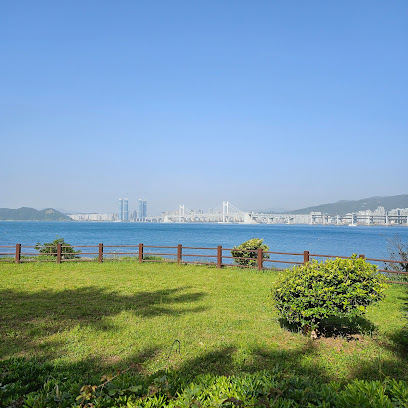
Cheongsapo
Experience the serene beauty of Cheongsapo, a tranquil coastal destination in Busan, perfect for relaxation and fresh seafood.
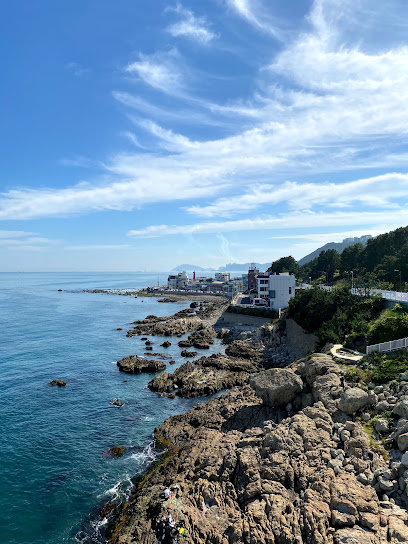
Dongbaekseom Lighthouse
Explore the breathtaking views and historical charm of Dongbaekseom Lighthouse, a must-visit tourist attraction in Busan, South Korea.
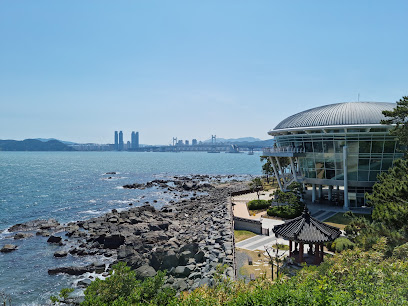
Haemaru
Explore Haemaru, a coastal treasure in Busan, where stunning views meet rich culture and delightful culinary experiences await.
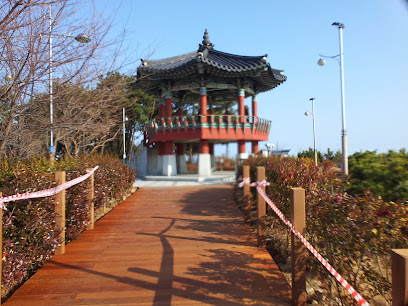
Dalmaji-gil Road
Discover the tranquility of Dalmaji-gil Road, a scenic coastal path in Busan adorned with cherry blossoms and breathtaking ocean views.
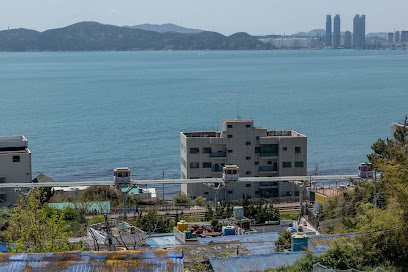
Gounbadagil Water Fountain
Experience the enchanting Gounbadagil Water Fountain in Haeundae, where art meets technology in a spectacular aquatic display.
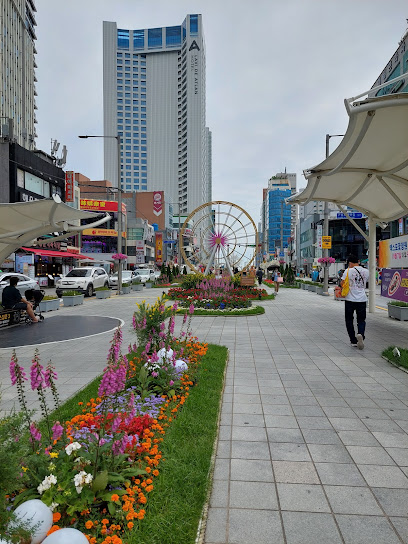
Essential places to dine
Geumsubokguk, Haeundae Head Store
Experience authentic fugu cuisine at Geumsubokguk in Haeundae - where culinary tradition meets modern taste.
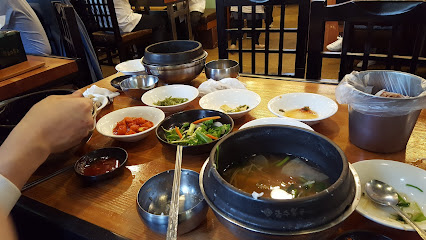
Namaste Haeundae
Discover authentic Indian and Nepalese flavors at Namaste Haeundae – where Halal meets hospitality on Busan's beautiful coast.
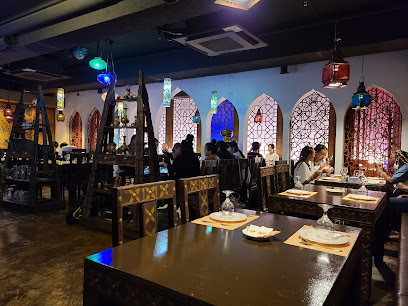
Haeundae Wonjo Halmae Gukbap
Experience authentic Korean cuisine at Haeundae Wonjo Halmae Gukbap in Busan—home of delectable gukbap that delights locals and visitors alike.
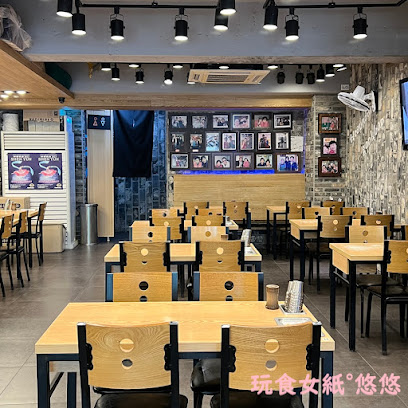
THE PARTY Haeundae
Experience the ultimate buffet extravaganza at THE PARTY Haeundae – where exquisite flavors meet vibrant ambiance in Busan.
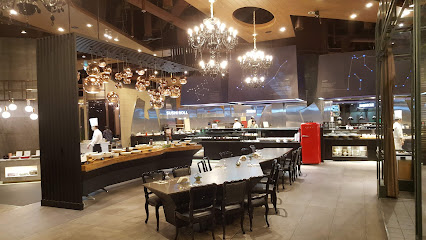
Hi asia(punjab) halal Indian&Pakistani Restaurant
Discover the rich flavors of India and Pakistan at Hi Asia, Busan's top halal restaurant offering authentic cuisine in a vibrant setting.
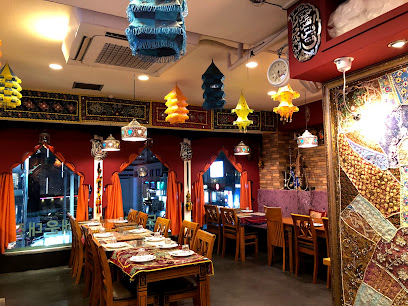
Eobu
Discover the exquisite flavors of Busan at Eobu - your ultimate seafood dining experience awaits!
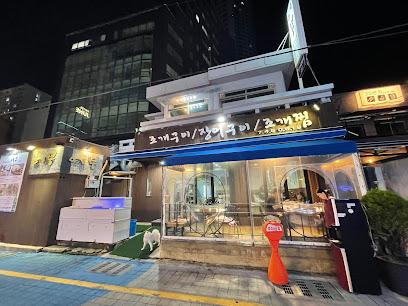
Dining Room Park Hyatt Busan
Experience unparalleled Western cuisine with stunning views at Dining Room Park Hyatt Busan - A must-visit culinary gem.
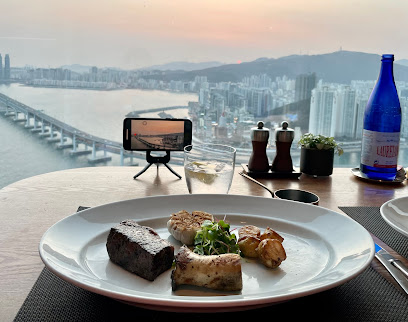
Kitchen dongbaek
Experience fine dining at Kitchen Dongbaek in Busan, where modern elegance meets traditional Korean flavors against breathtaking coastal views.
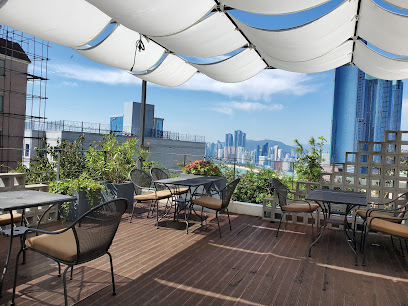
Leudohe
Discover the essence of fine dining at Leudohe, where authentic Korean cuisine meets elegant ambiance in Busan's Haeundae district.
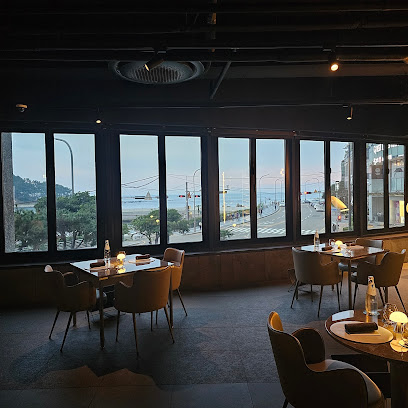
Piggy Bistro
Experience exquisite Western cuisine at Piggy Bistro in Haeundae-gu, Busan - a culinary delight awaits every traveler.
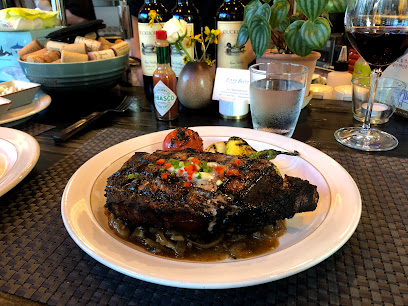
Markets, malls and hidden boutiques
NC Department Store Haeundae
Explore the NC Department Store in Haeundae, a vibrant shopping hub that offers a unique blend of fashion, food, and culture in Busan.
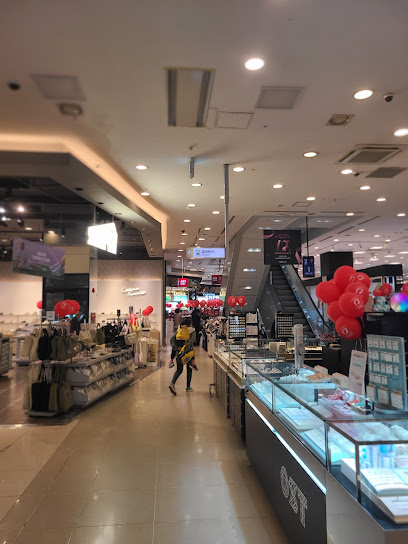
Haeundae Rodeo Outlet
Explore unbeatable deals and an array of brands at Haeundae Rodeo Outlet, a must-visit shopping haven in Busan.
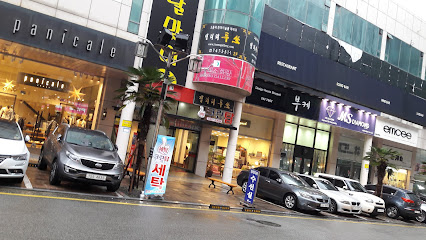
Busan Korea Tourist Souvenir Shop
Explore the vibrant Busan Korea Tourist Souvenir Shop for unique handcrafted treasures that celebrate Korean culture and charm.
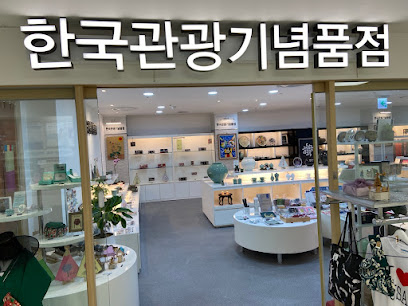
Tiffany & Co.
Explore the refined elegance of Tiffany & Co. in Busan, where timeless jewelry and luxurious gifts await you.

Oldeujem
Explore Oldeujem Shopping Mall in Haeundae, Busan – a lively shopping and dining destination reflecting local culture.
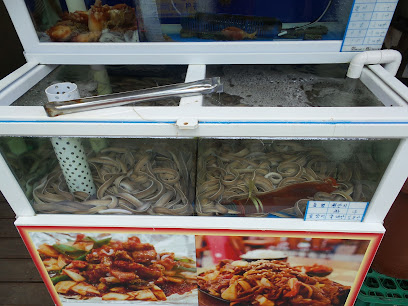
Over Cloud Souvenir Shop, Busan Haeundae
Discover unique souvenirs that capture the spirit of Busan at Over Cloud Souvenir Shop, located in the vibrant Haeundae district.
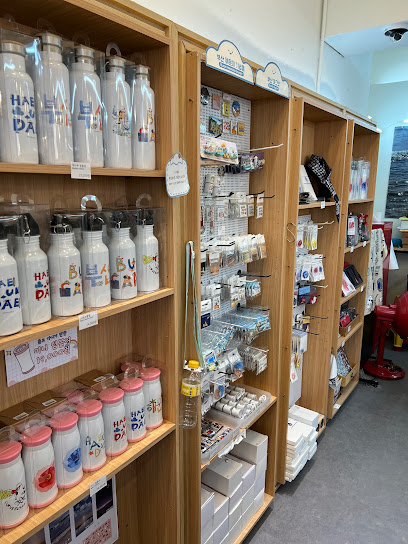
Busan Souvenir Heaundae Gift Shop
Explore Busan Souvenir Heaundae Gift Shop for unique local crafts and authentic Korean souvenirs that encapsulate the spirit of Busan.
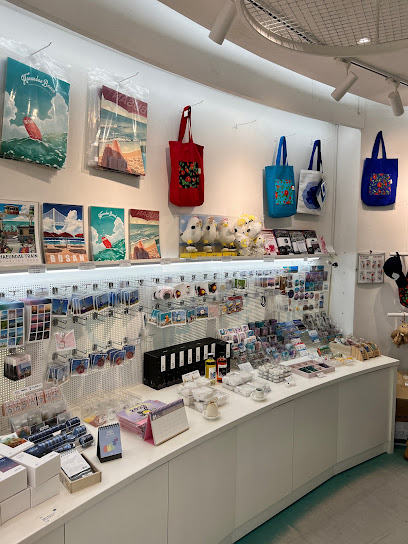
고래서이뻐
Explore 고래서이뻐 gift shop for unique Busan souvenirs, handcrafted treasures, and delightful gifts that capture the essence of Korean culture.
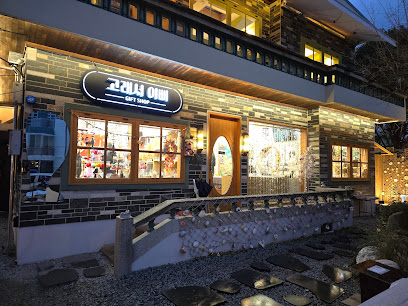
이티비티샵 부산해운대점
Explore the charm of 이티비티샵 부산해운대점, a gift shop in Busan offering unique souvenirs and local crafts that capture the essence of Korea.
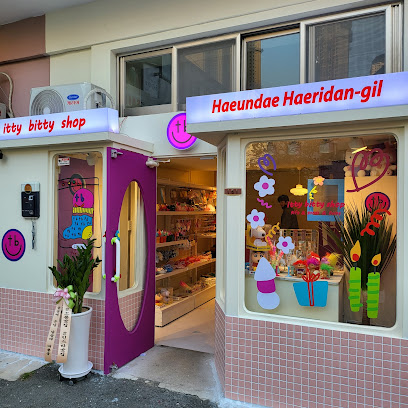
Illisyab
Explore Illisyab in Busan for unique gifts and souvenirs that capture the essence of Korean culture and craftsmanship.

Essential bars & hidden hideouts
Galmegi Brewing Haeundae
Discover the vibrant atmosphere of Galmegi Brewing Haeundae, where exceptional craft beers meet the beautiful seaside of Busan.
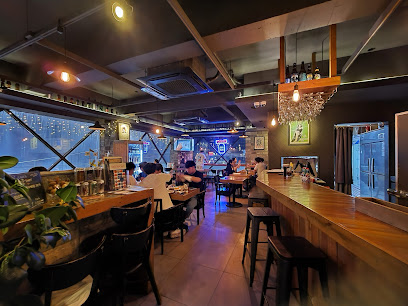
FUZZY NAVEL Haeundae
Discover the vibrant fusion of cocktails and Mexican cuisine at FUZZY NAVEL Haeundae, the heart of Busan's nightlife.
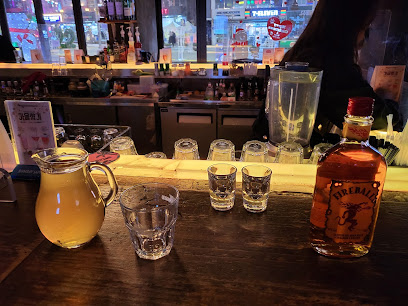
The Wolfhound Irish Pub & Restaurant
Discover the heart of Ireland in Busan at The Wolfhound Irish Pub & Restaurant, where authentic cuisine meets a vibrant atmosphere.
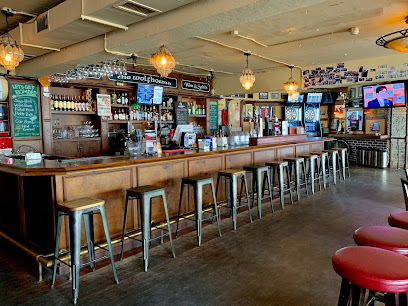
Sam Ryan's
Experience the vibrant nightlife at Sam Ryan's, a popular bar in Haeundae, Busan, offering a diverse drink menu and lively atmosphere.
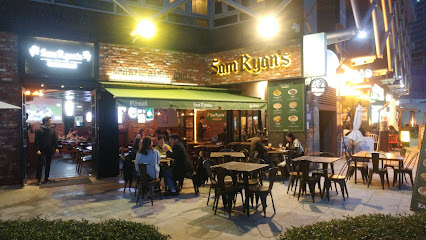
Haeundae Ogtap Rooftop
Discover the charm of Haeundae Ogtap Rooftop, where breathtaking views meet a vibrant bar atmosphere in the heart of Busan.
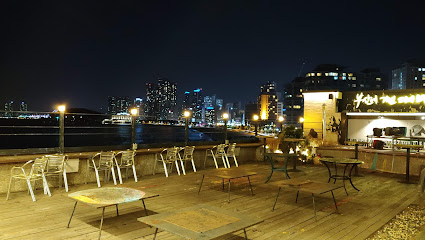
코젤다크하우스 해운대점
Discover Kozeal Dark House in Haeundae, where lively ambiance meets a delightful drink selection for an unforgettable night in Busan.
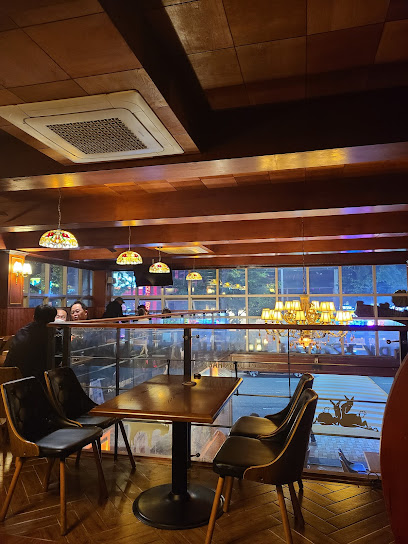
That Night
Discover the vibrant nightlife at That Night, a lively pub in Haeundae, offering an array of drinks and a unique hookah lounge experience.
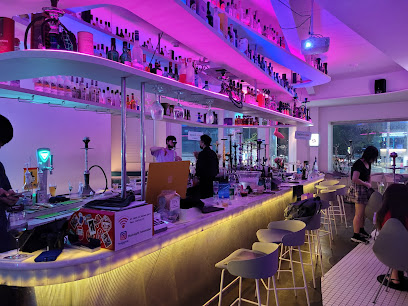
PETERS PUB 피터스펍
Experience the vibrant nightlife of Busan at Peters Pub, a lively bar offering a warm atmosphere and delicious drinks in Haeundae-gu.
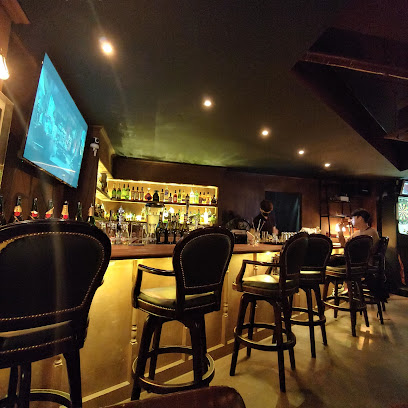
Guinness
Discover the lively spirit of Busan at Guinness, where exceptional drinks meet a vibrant atmosphere for an unforgettable night out.
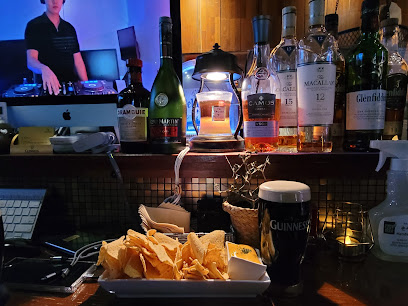
BEACH52
Experience the vibrant nightlife of Busan at BEACH52, where great drinks and lively ambiance await in Haeundae's premier bar.
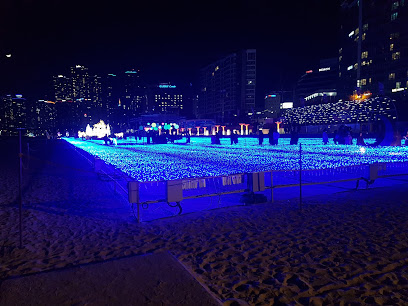
Local Phrases
-
- Hello안녕하세요
[annyeonghaseyo] - Goodbye안녕히 가세요
[annyeonghi gaseyo] - Yes네
[ne] - No아니요
[aniyo] - Please/You're welcome부탁합니다/천만에요
[butakhamnida/cheonmaneyo] - Thank you감사합니다
[gamsahamnida] - Excuse me/Sorry죄송합니다/미안합니다
[joesonghamnida/mianhamnida] - How are you?어떻게 지내세요?
[eotteoke jinaeseyo?] - Fine. And you?잘 지내요. 당신은요?
[jal jinaeyo. dangsineunyo?] - Do you speak English?영어 할 수 있습니까?
[yeongeo hal su issseubnikka?] - I don't understand이해하지 못해요
[ihaehaji mothaeyo]
- Hello안녕하세요
-
- I'd like to see the menu, please메뉴를 보고 싶어요
[menyureul bogo sipeoyo] - I don't eat meat고기를 먹지 않아요
[gogireul meokji anayo] - Cheers!건배!
[geonbae!] - I would like to pay, please계산하고 싶어요
[gyesanhago sipeoyo]
- I'd like to see the menu, please메뉴를 보고 싶어요
-
- Help!도와주세요!
[dowajuseyo!] - Go away!가세요!
[gaseyo!] - Call the Police!경찰을 불러주세요!
[gyeongchareul bulleojuseyo!] - Call a doctor!의사를 불러주세요!
[uisareul bulleojuseyo!] - I'm lost길을 잃었어요
[gireul ilheosseoyo] - I'm ill아파요
[apayo]
- Help!도와주세요!
-
- I'd like to buy...사고 싶어요...
[sago sipeoyo...] - I'm just looking둘러보고 있어요
[dulleobogo isseoyo] - How much is it?얼마에요?
[eolmaeyo?] - That's too expensive너무 비싸요
[neomu bissayo] - Can you lower the price?가격을 내릴 수 있어요?
[gageoreul naeril su isseoyo?]
- I'd like to buy...사고 싶어요...
-
- What time is it?지금 몇 시에요?
[jigeum myeot sieyo?] - It's one o'clock한 시에요
[han sieyo] - Half past (10)열 시 반
[yeol si ban] - Morning아침
[achim] - Afternoon오후
[ohu] - Evening저녁
[jeonyeok] - Yesterday어제
[eoje] - Today오늘
[oneul] - Tomorrow내일
[naeil] - 1하나
[hana] - 2둘
[dul] - 3셋
[set] - 4넷
[net] - 5다섯
[daseot] - 6여섯
[yeoseot] - 7일곱
[ilgop] - 8여덟
[yeodeol] - 9아홉
[ahop] - 10열
[yeol]
- What time is it?지금 몇 시에요?
-
- Where's a/the...?...이 어디에요?
[...i eodieyo?] - What's the address?주소가 뭐에요?
[jusoga mwoeyo?] - Can you show me (on the map)?(지도로) 보여주세요
[(jidoro) boyeojuseyo] - When's the next (bus)?다음 (버스) 언제에요?
[da-eum (beoseu) eonjeyo?] - A ticket (to ....)(....) 표 하나 주세요
[(....) pyo hana juseyo]
- Where's a/the...?...이 어디에요?
History of Haeundae
-
Haeundae's history can be traced back to the prehistoric period, with evidence of early human settlements in the area. Archaeological findings, such as dolmens and ancient pottery, indicate that the region has been inhabited for thousands of years. The name 'Haeundae' itself is derived from 'hae' meaning sea and 'undae' meaning sand, highlighting the area’s close relationship with the ocean.
-
In the late 19th century, Haeundae began to emerge as a popular seaside destination, particularly during the Japanese colonial period. The beach became a favored retreat for the elite, and during this time, several villas and hotels were established, laying the groundwork for Haeundae's transformation into a bustling resort area.
-
After the Korean War, Haeundae experienced significant urban development. The 1970s and 1980s saw a rapid increase in population and infrastructure, driven by economic growth and urban migration. This period marked the beginning of Haeundae's development into a modern city district, with high-rise apartments and commercial complexes altering the landscape.
-
Since its inception in 1996, the Busan International Film Festival (BIFF) has played a pivotal role in highlighting Haeundae on the global cultural map. Held annually in October, this festival attracts filmmakers, critics, and cinephiles from around the world, showcasing not only Korean cinema but also films from Asia and beyond, fostering cultural exchange.
-
The Haeundae Sand Festival, first held in 2005, celebrates the area's beautiful sandy beach and rich maritime culture. The festival features sand sculpting competitions, cultural performances, and various activities that engage both locals and tourists, reinforcing Haeundae's identity as a vibrant tourist hub.
Haeundae Essentials
-
Haeundae is easily accessible from various parts of Busan. The most convenient way is to take the Busan Metro Line 2 to Haeundae Station. If you are coming from Busan Station, the journey takes about 40 minutes. You can also take a taxi or bus; Bus No. 1003, which connects major districts like Seomyeon and Dongdaegu, stops at Haeundae Beach. Alternatively, the Busan-Gimhae Light Rail connects to Gimhae International Airport, leading to Haeundae via the metro.
-
Haeundae is well-connected through public transport. The Busan Metro Line 2 runs through the area, making it easy to reach nearby districts. Local buses are also available, with routes covering major attractions. For a more leisurely experience, bicycles can be rented at various points along the beach, allowing you to explore the scenic coastal paths at your own pace.
-
Haeundae is generally a safe neighbourhood for tourists, but it’s wise to remain vigilant, especially in crowded areas. While violent crime is rare, petty theft can occur, particularly on busy beaches. Avoid walking alone late at night in less populated areas, and keep an eye on your belongings. It is advisable to stay away from secluded beach areas after dark.
-
In case of an emergency, dial 112 for police assistance or 119 for fire and medical emergencies. Hospitals and clinics are available throughout Haeundae, with the Busan National University Hospital being one of the main medical facilities. Travel insurance that covers medical emergencies is strongly recommended. For minor health issues, local pharmacies can provide over-the-counter medications.
-
Fashion: Do wear comfortable beach attire, but be mindful of local customs when visiting religious sites—cover shoulders and avoid swimwear. Religion: Do respect local customs and traditions; if visiting temples or churches, dress modestly. Public Transport: Do offer your seat to the elderly; don't eat or drink on public transport. Greetings: Do bow slightly when greeting locals; don’t engage in loud conversations in public spaces. Eating & Drinking: Do try local seafood dishes, and don’t waste food as it is considered disrespectful.
-
To experience Haeundae like a local, visit the Haeundae Market for fresh seafood and traditional Korean snacks. Engage in local festivals, especially the Haeundae Sand Festival in summer. Explore the quieter beaches like Songjeong for a more relaxed vibe. Don’t miss the Dongbaekseom Island, where you can enjoy scenic walking paths and stunning views of the coastline. For a taste of local nightlife, check out the beachfront bars and enjoy a drink while watching the sunset.
Trending Landmarks in Haeundae
Nearby Cities to Haeundae
-
Things To Do in Ulsan
-
Things To Do in Gyeongju
-
Things To Do in Daegu
-
Things To Do in Pohang
-
Things To Do in Andong
-
Things To Do in Suncheon
-
Things To Do in Jeonju
-
Things To Do in Daejeon
-
Things To Do in Gwangju
-
Things To Do in Fukuoka
-
Things To Do in Mokpo
-
Things To Do in Suwon
-
Things To Do in Jeju City
-
Things To Do in Hiroshima
-
Things To Do in Chuncheon












